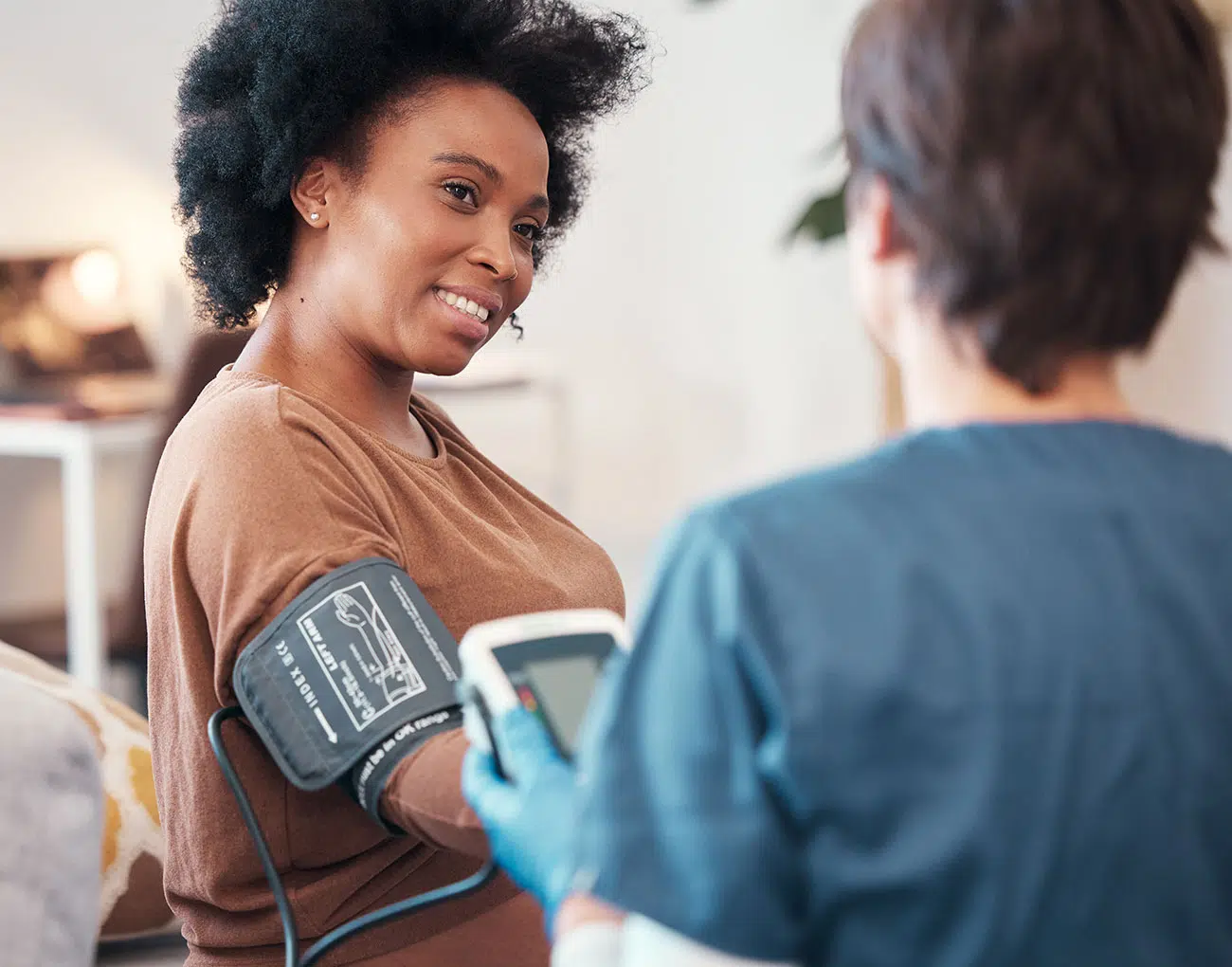Chronic Kidney Disease (CKD) and heart disease are interconnected health conditions that often coexist, creating a complex medical landscape for those affected.
Understanding the link between heart and kidney health is crucial for effective management and improved outcomes.
If you or a loved one are living with these conditions and hoping to manage heart and kidney failure effectively, our experienced team can help.
Below, we explore the tie between heart and kidney failure, examine symptoms, and explore strategies for managing cardiovascular disease in patients with chronic kidney disease. Continue reading to learn more.

The Tie Between Heart Failure and Kidney Failure
Knowing how heart failure and kidney failure are connected shows that when one has problems, the other can also be affected. This connection, called cardiorenal syndrome, means that issues with the heart and kidneys can impact each other. It’s like a close partnership where challenges in one area can lead to difficulties in the other.
For instance, when the heart cannot pump blood effectively (heart failure), it impacts blood flow to the kidneys. In response, the kidneys hold onto salt and water, leading to fluid buildup and kidney problems.
Conversely, CKD, including stage 4 kidney disease, can cause fluid imbalances and increase inflammation, contributing to heart problems like high blood pressure and clogged arteries.
Along with their effect on one another, shared risk factors of heart and kidney failure include:
- High blood pressure.
- Diabetes.
- Clogged arteries.
By understanding and addressing these interconnected issues, individuals and healthcare providers can collaborate effectively, leading to improved outcomes and a better quality of life for those navigating heart and kidney concerns.
A Look at Heart and Kidney Failure Symptoms
Looking at heart and kidney failure symptoms helps us understand these health conditions better. They have some common signs, underlining the importance of noticing these signals early for prompt intervention.
Common symptoms include:
Fluid Retention
One prevalent symptom in both heart and kidney failure is fluid retention, leading to swelling in various parts of the body. This can manifest as swelling in the legs, ankles, or abdomen.
Shortness of Breath
Difficulty breathing, especially during physical activity, is a shared symptom. The heart and kidneys play vital roles in maintaining oxygen balance, so their dysfunction can result in breathlessness.
High Blood Pressure
Elevated blood pressure is a common factor in both heart and kidney issues. The interconnectedness of these organs often means that problems in one can contribute to increased blood pressure.
Fatigue
Persistent fatigue is frequently experienced in heart and kidney failure. Reduced oxygen delivery to tissues and impaired filtration can lead to ongoing tiredness.
Decreased Urination
A reduction in urine output is a symptom that signals potential kidney problems. The kidneys play a crucial role in eliminating waste through urine, and any decline in this function may indicate issues.
Chest Pain or Discomfort
Chest pain or discomfort can be a shared symptom, emphasizing the connection between heart and kidney health. This symptom requires prompt attention and evaluation.
If you notice any of these signs, seeing a doctor is essential. They can evaluate your situation thoroughly and create a personalized care plan. Acting early can make a big difference in improving outcomes and the quality of life for those dealing with heart and kidney issues.
How to Manage Cardiovascular Disease in Patients with Chronic Kidney Disease
Effectively managing cardiovascular disease in patients with chronic kidney disease requires a holistic approach that takes into account both heart and kidney health.
One key aspect is controlling blood pressure through prescribed medications like ACE inhibitors or angiotensin II receptor blockers (ARBs), essential for safeguarding both organs.
Cholesterol management, often involving statins, helps mitigate the risk of atherosclerosis and supports cardiovascular well-being.
For individuals with diabetes, maintaining tight control over blood sugar levels is crucial in preventing further harm to the heart and kidneys.
In addition to managing co-occurring conditions, adopting a heart-healthy diet low in sodium, saturated fats, and cholesterol and regular exercise contributes to overall cardiovascular health. Regular medical check-ups, encompassing kidney function tests and cardiac assessments, play a vital role in monitoring and managing both conditions.
Medications targeting CKD and cardiovascular disease, such as SGLT2 inhibitors and diuretics, are often used to address specific concerns. Patient education enhances overall well-being by focusing on understanding prescribed medications and lifestyle counseling.
The goal of CVD in CKD management is to help people with both conditions to live better and have a higher quality of life.
Choose a Comprehensive Approach to CVD in CKD
At Innovative Renal Care, we recognize that managing chronic kidney and heart disease requires a multifaceted and integrated approach.
Addressing risk factors, adopting a heart-healthy lifestyle, and close medical supervision are critical elements in preventing and managing these interconnected conditions.
By understanding the tie between heart and kidney health, individuals and healthcare providers can work collaboratively toward improved outcomes and a better quality of life for those affected.
If you or a loved one are living with cardiovascular disease in chronic kidney disease, we are here to help. Contact us today to learn more.
Informed patients are healthier and can more easily adjust to the restrictions associated with having a chronic disease.
“You’ll never find the quality of care that you get at an ARA facility anywhere else. The staff always have your best interest at heart and will go out of their way to make you feel comfortable and help however they can. The truth is, I consider them my extended family!”
Mr. Randal Beatty, University Kidney Center Hikes Lane, Louisville, KY